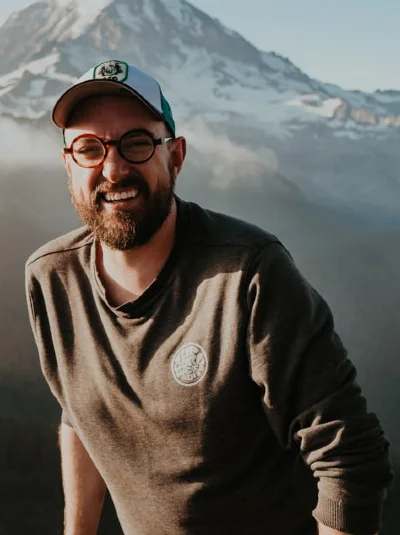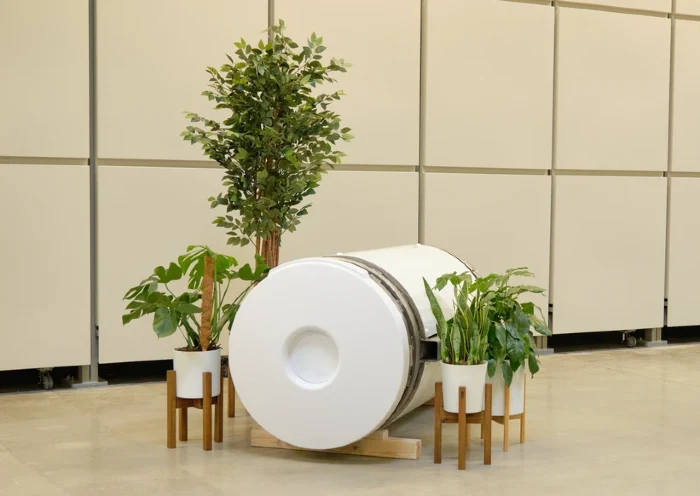Eco-Conscious Endings: Young Adults Lead the Charge in Composting Funerals
“Why wait to decide to turn yourself into soil?” This provocative question is what Earth Funeral, a pioneering company in Washington’s human composting sector, asks those contemplating their own mortality. Earth Funeral is one of several companies that will help you meticulously plan your post-mortem transformation into nutrient-rich soil—a service costing just under $5,500.
Human composting, or terramation, is an innovation that isn’t exactly new to residents of Washington state. In 2019, local lawmakers approved legislation allowing individuals to convert their remains into compost as an environmentally friendly alternative to traditional burial methods. Since then, the practice has gained legality in seven states, with Washington boasting three companies dedicated to this unique end-of-life service.
Average Traditional Costs
Cremation: The cost of cremation can range widely, depending on whether it includes a funeral service. A direct cremation, which is the most basic and doesn’t include a ceremony, typically costs between $1,000 to $2,500. Now, if the cremation includes a funeral service with viewing and a memorial, the costs increase to $3,000 to $5,000 or more.
Funeral: The cost of a traditional funeral, including a viewing, burial service, and the price of a casket, can range from $7,000 to $12,000 or more. This estimate usually includes service fees, transportation of the body, embalming, a casket, and a viewing or ceremony, but might exclude cemetery costs such as a burial plot and headstone, which can significantly increase expenses.
Pre-Planning: A Commitment to Earth After Death
The unpredictability of death has led these companies to depend on pre-arranged agreements with potential clients, intrigued by the idea of turning their bodies into compost. While many of Earth Funeral’s clients are over 55, the trend is increasingly attracting a younger demographic, as noted by Sarah McWalter, a 40-year-old care advisor at the company. She observes that many young, child-free individuals are embracing this option, undeterred by having to consider other preferences. Moreover, their heightened climate awareness propels them towards choosing composting as a meaningful way to contribute positively to the planet posthumously.
How Does It Work?

Before being placed in the human composting pod, known as the soil transformation vessel, the body is gently washed and wrapped in a biodegradable shroud.

The body is placed in a vessel (composting pod) surrounded by a carefully calibrated selection of wildflowers, wood chips, alfalfa, and straw. The vessel is sealed and the transformation into soil begins in a process.

The duration of the soil transformation process varies by provider. Earth Funeral averages 45 days (Earth Funeral) while Recomponse takes around 5 to 7 weeks.
Dale
Dale Knudsen, 35, co-founder of Wilderpines, an elopement company, is also exploring green funeral options. His aversion to conventional burial methods grew from a high school project, leading him to disdain the traditional practices of embalming and burial in concrete vaults. “That always seemed very aggressive and unnecessarily harsh just so some people can see a gussied up body,” Knudsen remarked. He now contemplates a natural burial at the White Eagle Memorial Preserve or opting for human composting, envisioning his funeral as a scavenger hunt starting at Lakeview Cemetery—a reflection of his desire for a lighter, more engaging farewell.
The environmental toll of traditional funerals is staggering: annually, they introduce 800,000 gallons of formaldehyde, 104,000 tons of steel, 1.6 million tons of reinforced concrete, and substantial amounts of hardwood into the earth.
Cremation, too, has its drawbacks, releasing significant carbon emissions. Knudsen’s experiences during the pandemic, especially his reflective walks through Lakeview Cemetery, have solidified his resolve to choose a sustainable death.

Brenton
Similarly, Brenton Clark, 38, an employee at the state auditor’s office, has pre-planned his composting with Recompose ($7,000 average cost). “Planning for a potential death at 38 feels a little strange,” he admits, yet acknowledges the prudence in contemplating the end realistically, especially after surviving a severe accident. His arrangements aim to simplify the process for his family, ensuring that his ecological beliefs extend beyond his life.
Nancy
For Nancy Franke, 68, a retired administrative and booking agent, the decision to arrange a composting funeral was influenced by considerations for her grandson’s future in a rapidly changing environment. “I have more days behind me than ahead of me, he has his whole life. What can I do right now to help him?” she pondered. Franke is comforted by the thought of her body enriching the earth, contributing to the growth of trees and becoming part of the ecosystem indefinitely.
What States Have Legalized Human Composting?
- Washington – The first state to legalize human composting in 2019.
- Colorado – Legalized in 2021.
- Oregon – Also legalized in 2021.
- Vermont – Legislation passed in 2022.
- California – Became legal in 2022.
- New York – Legalized in 2022.
- Idaho – Added to the list of states in 2023.
More states are considering laws allowing natural organic reduction as an alternative to traditional burial and cremation methods. We’ll keep you updated!
This growing trend reflects a broader shift towards environmentally conscious living—and now, dying. As more individuals opt for green burials, they pave the way for a future where every aspect of our lives, including our departure, contributes to the sustainability of the planet.



















